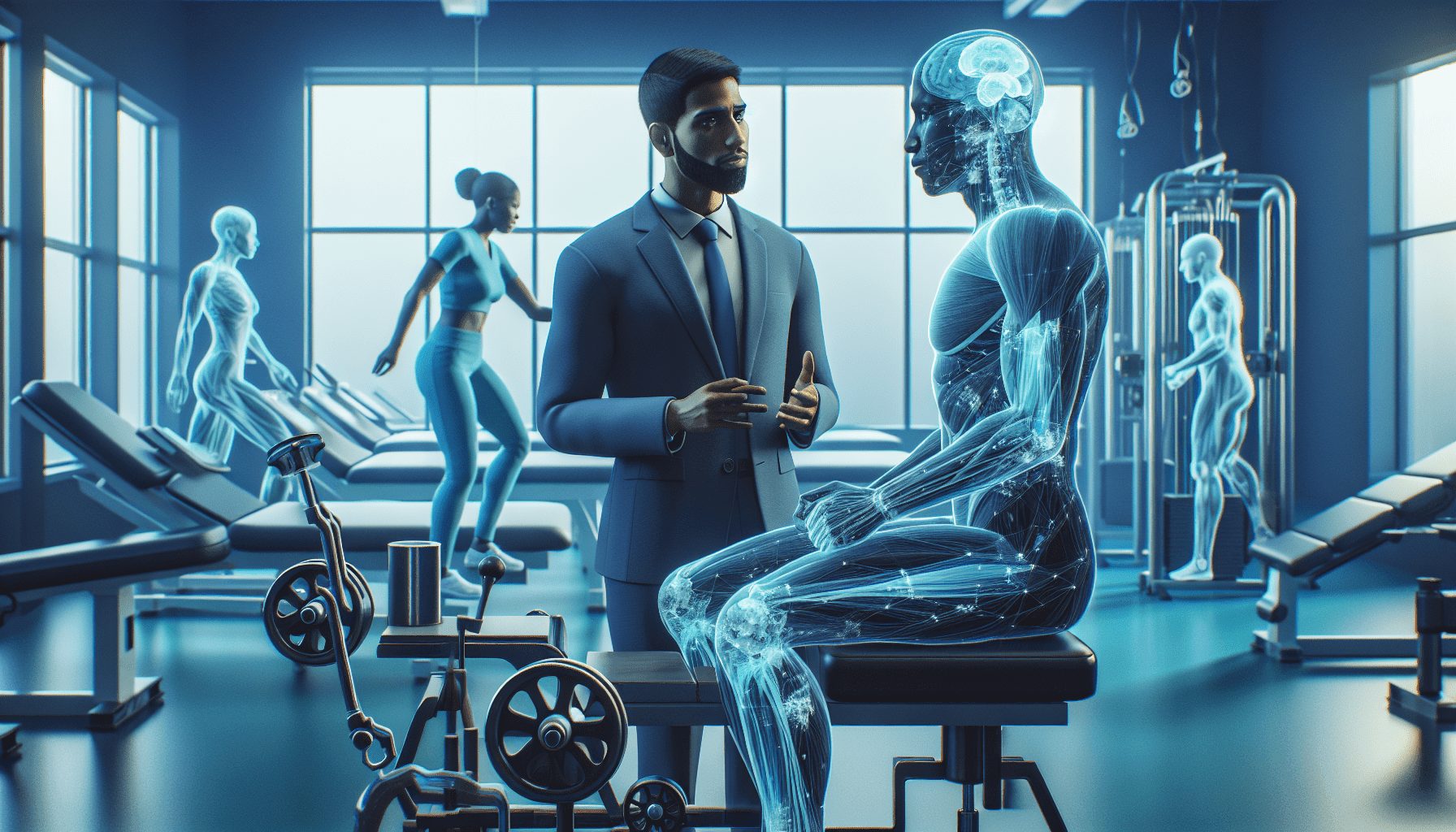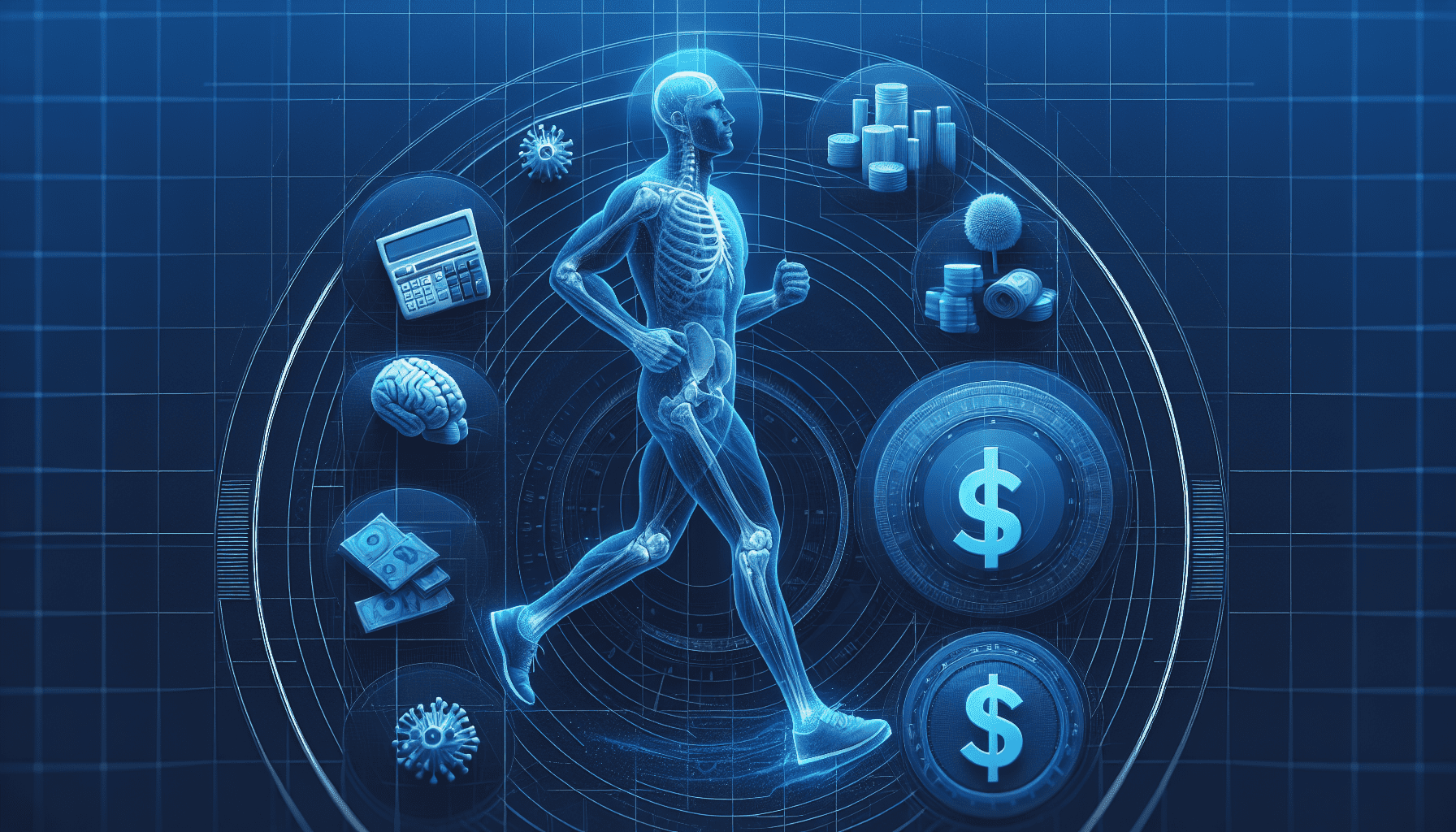The Future of Hiring: How AI Recruitment is Changing the Game
Overview of AI recruitment and its impact on hiring
In today’s rapidly evolving job market, artificial intelligence (AI) recruitment has emerged as a game-changer, revolutionizing the way companies find and hire top talent. AI, with its ability to analyze vast amounts of data and perform complex tasks, is transforming the traditional recruitment process into a more efficient, effective, and objective endeavor. By leveraging AI-powered tools and algorithms, companies can streamline the hiring process, improve candidate experience, and make data-driven decisions that lead to better hiring outcomes.
AI recruitment encompasses a range of technologies and applications that automate and enhance various stages of the hiring process, from candidate sourcing and resume screening to interview analysis and decision making. These advancements have the potential to significantly impact the way organizations attract, evaluate, and select candidates for their open positions.
The use of AI in recruitment is on the rise, with companies embracing technology to gain a competitive edge in the talent acquisition landscape. By leveraging AI recruiting software and AI recruiting tools, businesses can overcome the challenges of traditional hiring methods and tap into a wider pool of qualified candidates.
This article will delve into the ways that AI is transforming the recruitment landscape and explore the benefits, challenges, and ethical considerations associated with its adoption. We will also discuss the future of AI recruitment, highlighting advancements in AI technology and the integration of AI with human expertise. So, buckle up and get ready to explore the fascinating world of AI recruitment.
But first, let’s dive into how AI is transforming the recruitment process, starting with automated resume screening.
How AI is Transforming Recruitment
In the ever-evolving world of technology, Artificial Intelligence (AI) has emerged as a game-changer in various industries. One such field where AI is making a significant impact is recruitment. By leveraging the power of AI, companies are revolutionizing their hiring processes, making them more efficient, objective, and data-driven.
Automated Resume Screening
Gone are the days of manual resume screening, where HR professionals had to spend countless hours sifting through resumes. AI-powered recruitment tools have now taken over this cumbersome task. Through sophisticated algorithms and machine learning, these tools can quickly analyze resumes, identify relevant qualifications, and shortlist the most suitable candidates for further evaluation.
The ai screening tools save valuable time and minimize the chances of human bias influencing the selection process. By removing the subjective element, companies can ensure that every candidate receives a fair shot based on their skills and experience.
Candidate Sourcing and Matching
Finding the right candidates for a job opening can be daunting, especially when faced with a deluge of applications. Fortunately, AI has come to the rescue with its advanced ai candidate sourcing capabilities. AI recruiting software can scour various sources, such as job boards and social media platforms, to identify candidates matching the desired criteria.
Through intelligent algorithms, these tools can analyze vast amounts of data and present recruiters with a shortlist of top candidates. This saves time and improves the quality of candidate selection, leading to better hiring decisions.
Chatbots for Initial Screening
In the initial stages of the recruitment process, candidates often have several questions regarding the job role, company culture, and application process. AI-powered chatbots are now fulfilling this role, providing instant responses and guidance to candidates.
These chatbots can engage with candidates conversationally, answering frequently asked questions and collecting relevant information for further evaluation. Companies can efficiently manage many applicants by automating the initial screening process, ensuring a seamless candidate experience.
Video Interviews with AI Analysis
Traditional interviews can be subjective and prone to biases. With AI, companies can now conduct video interviews and utilize AI analysis to gain deeper insights into candidate performance. Through facial recognition and voice analysis, AI algorithms can evaluate non-verbal cues, vocal tone, and facial expressions, providing recruiters with valuable data to assess candidate suitability.
This AI recruitment software ensures a standardized evaluation process, reducing human biases and increasing objectivity. Moreover, it allows recruiters to focus on analyzing the data rather than spending time on repetitive tasks.
Data-Driven Decision Making
In the era of big data, companies increasingly rely on data to drive decision-making across all operations. Recruitment is no exception. AI recruitment tools enable companies to gather and analyze vast data, including candidate profiles, performance metrics, and hiring outcomes.
By harnessing the power of predictive analytics, companies can make informed decisions about candidate selection, identify patterns of success, and optimize their hiring strategies. This data-driven approach ensures that companies are hiring the best candidates and continuously improving their recruitment processes.
In conclusion, AI is transforming the recruitment landscape by automating resume screening, enhancing candidate sourcing, enabling chatbot interactions, facilitating video interviews with AI analysis, and driving data-driven decision-making. By embracing these AI advancements, companies can streamline their hiring processes, improve candidate experiences, and make more objective and informed hiring decisions. The power of AI is indeed reshaping the future of recruitment.
Next, let’s delve into the benefits of AI recruitment and how it is revolutionizing the hiring experience. Stay tuned!
Internal Links:
Benefits of AI Recruitment
Artificial Intelligence (AI) has revolutionized the recruitment process, bringing numerous benefits to both employers and candidates. By leveraging AI technology, organizations can streamline their hiring procedures and make more informed decisions. Let’s delve into the advantages that AI recruitment brings to the table.
Time and Cost Efficiency
One of the primary benefits of AI recruitment is its ability to drastically reduce the time and cost associated with the hiring process. Traditional methods of screening resumes and shortlisting candidates can be time-consuming and labor-intensive. However, AI-powered tools such as automated resume screening and candidate sourcing make this process more efficient.
AI algorithms can swiftly analyze and evaluate many resumes, identifying the most qualified candidates based on predefined criteria. This eliminates manual screening, allowing recruiters to focus their time and efforts on engaging with highly suitable candidates.
AI recruitment tools can also automate various administrative tasks, such as scheduling interviews and sending follow-up emails. By automating these repetitive tasks, recruiters can optimize their workflow and allocate their time to more value-added activities.
Improved Candidate Experience
In today’s competitive job market, providing a positive candidate experience is crucial for organizations looking to attract top talent. AI recruitment plays a pivotal role in enhancing the candidate experience throughout the hiring process.
With the integration of chatbots for initial screening, candidates can receive immediate responses to their queries, ensuring a prompt and personalized experience. These AI-powered chatbots can answer frequently asked questions, provide information about the company and job role, and even conduct basic assessments or pre-screening interviews.
Moreover, AI technology enables a seamless and convenient interview process through video interviews with AI analysis. Candidates can now complete interviews from the comfort of their own homes, eliminating the need for travel expenses and logistics. AI algorithms can analyze facial expressions, body language, and speech patterns, providing valuable insights to recruiters about candidates’ suitability for a role.
Enhanced Objectivity and Unbiased Hiring
AI recruitment tools offer objectivity that can be challenging to achieve through traditional hiring methods. Algorithms are designed to evaluate candidates based on their qualifications, skills, and experience rather than being influenced by bias or personal judgments.
This objectivity reduces the risk of unconscious bias in hiring, promoting unbiased hiring and fostering diversity and inclusion within organizations. By removing subjective decision-making factors, AI recruitment ensures that candidates are evaluated solely on merit, leading to a fairer and more equitable selection process.
Greater Pool of Qualified Candidates
AI recruitment expands the reach of talent acquisition by accessing a greater pool of qualified candidates. Traditional hiring methods often rely on manually searching for candidates through job boards or professional networks. However, AI-powered candidate sourcing and matching tools can tap into vast databases, scouring the internet for potential candidates that align with the job requirements.
These tools employ advanced algorithms that analyze resumes, social media profiles, and professional networks to identify candidates with the right skills and experience. By widening the talent pool, organizations have a higher chance of finding exceptional candidates who may have been overlooked through conventional methods.
Predictive Analytics for Better Hiring Decisions
AI recruitment leverages predictive analytics to improve the accuracy of hiring decisions. By analyzing historical data and patterns, AI algorithms can identify the key factors contributing to successful hires. This data-driven approach enables recruiters to make more informed decisions and identify candidates more likely to thrive in the organization.
Through predictive analytics, AI recruitment tools can assess candidates’ fit within the company culture, predict their future performance, and determine their growth potential. This predictive capability assists organizations in making strategic hiring decisions, minimizing the risk of a poor fit and maximizing the chances of long-term success.
In conclusion, AI recruitment brings many benefits to the hiring process. From saving time and reducing costs to enhancing the candidate experience and increasing objectivity, AI technology is transforming the way organizations attract and select talent. With the power of AI, employers can make more informed decisions while providing an efficient and seamless experience for candidates.
Challenges and Ethical Considerations
As with any transformative technology, AI recruitment is not without its challenges and ethical considerations. While the benefits of using AI in the hiring process are undeniable, it is crucial to address and navigate these potential pitfalls. This section will delve into some of the key challenges and ethical considerations that arise with the widespread adoption of AI recruitment.
Bias and Discrimination Concerns
One of the primary concerns surrounding AI recruitment is the potential for bias and discrimination. AI algorithms are designed to make decisions based on patterns and data, but if the data used to train these algorithms is biased, it can lead to discriminatory outcomes. For example, if historical hiring data is biased against certain demographics, the AI system may inadvertently perpetuate this bias by favoring candidates from certain backgrounds while excluding others. This can result in a lack of diversity and inclusivity in the hiring process.
To overcome this challenge, organizations must take proactive steps to ensure the data used to train AI algorithms is diverse and representative of the entire candidate pool. Regular audits and reviews of the AI system’s decision-making processes are also essential to identify and mitigate any potential biases.
Privacy and Data Security Issues
Another area of concern when it comes to AI recruitment is privacy and data security. AI systems rely on vast amounts of personal data, including resumes, contact information, and even video interviews. Safeguarding this data and ensuring its privacy is of utmost importance. Organizations must comply with data protection regulations and implement robust security measures to prevent unauthorized access or data breaches. Encryption and secure storage systems can help protect sensitive candidate information and reassure applicants that their personal data is handled with care.
Human Interaction and Personal Touch
While AI recruitment offers numerous benefits, there is a concern that it may lead to a loss of human interaction and the personal touch often associated with the hiring process. Candidates may feel disconnected and frustrated if their interactions are solely with AI-powered systems, without any human involvement. It is important to balance automation and human touch to ensure candidates feel valued and can engage with real people throughout the hiring process. HR professionals can play a vital role in creating a seamless integration between AI and human interaction, providing candidates with the support and guidance they need.
Impact on Employment and HR Roles
Adopting AI recruitment technology also raises questions about the impact on employment and HR roles. As AI systems become more sophisticated, there is a concern that certain tasks traditionally performed by HR professionals may become automated. While AI can streamline and optimize several aspects of the hiring process, it is essential to consider the potential displacement of human workers. Organizations must plan for the future by upskilling and reskilling HR professionals to leverage AI technology effectively and focus on higher-value tasks that require human expertise, such as building relationships with candidates and strategic decision-making.
Navigating these challenges and ethical considerations is crucial for successfully implementing AI recruitment. Organizations must be mindful of bias and discrimination, prioritize data privacy and security, maintain human interaction, and adapt HR roles to embrace the benefits of AI while ensuring a fair and inclusive hiring process. By addressing these concerns head-on, organizations can harness the power of AI recruitment while upholding ethical standards and fostering a positive candidate experience.
Read more about AI recruitment and its potential to transform the hiring process on Engaged Headhunters.
The Future of AI Recruitment
As technology continues to advance at an unprecedented pace, the future of AI recruitment holds immense promise and potential. With each passing day, advancements in AI technology are pushing the boundaries of what is possible in the hiring process. From automated resume screening to data-driven decision-making, AI is transforming the way companies find and select the best candidates for their organizations.
Advancements in AI Technology
The future of AI recruitment lies in the constant evolution and improvement of AI technology. As algorithms become more sophisticated and powerful, they can analyze and interpret vast amounts of data with incredible speed and accuracy. This enables AI to perform complex tasks such as candidate sourcing, matching, and video interviews with AI analysis.
One of the most exciting advancements is the integration of AI with human expertise. While AI can automate many aspects of the recruitment process, it cannot replace the human touch. By combining the power of AI with the insights and intuition of experienced recruiters, companies can achieve a more holistic and effective hiring strategy.
Integration of AI with Human Expertise
While AI can automate repetitive tasks and streamline processes, it is essential to recognize the value of human expertise in the recruitment process. AI can assist recruiters in identifying top candidates, but the human touch truly gauges a candidate’s cultural fit, soft skills, and potential for growth within the organization.
By integrating AI technology with human expertise, recruiters can leverage the best of both worlds. AI can handle the initial screening and analysis of resumes, freeing recruiters to focus on building relationships with candidates and conducting more meaningful interviews. This collaboration between AI and human recruiters ensures a more comprehensive evaluation of candidates and ultimately leads to better hiring decisions.
Continuous Learning and Adaptation
The future of AI recruitment is not static; it is constantly evolving and adapting to the changing needs of the job market. AI algorithms can learn from past hiring decisions and continuously improve their performance. This continuous learning allows AI to become more accurate in identifying the most qualified candidates and predicting their success within an organization.
Moreover, AI can adapt to the ever-changing job requirements and candidate preferences landscape. AI can stay ahead of the curve by analyzing industry trends and candidate data and identifying the skills and qualities in high demand. This enables companies to recruit and attract top talent proactively, ensuring they stay competitive.
In conclusion, the future of AI recruitment holds great promise. As AI technology advances, integrating AI with human expertise and the ability to learn and adapt will revolutionize how companies hire continuously. By leveraging the power of AI, companies can streamline their hiring processes, improve candidate experiences, and make more informed and objective hiring decisions.
To learn more about the benefits and challenges of AI recruitment, check out our previous article on AI Recruitment.
Conclusion
In conclusion, AI recruitment is revolutionizing the hiring process in significant ways. With automated resume screening, candidate sourcing and matching, chatbots for initial screening, video interviews with AI analysis, and data-driven decision-making, AI is streamlining and optimizing the recruitment process like never before.
The benefits of AI recruitment are numerous. It increases time and cost efficiency, allowing recruiters to focus on more strategic tasks. Additionally, candidates experience an improved recruitment journey with faster, more personalized interactions. AI also facilitates objectivity and unbiased hiring, eliminating human biases and ensuring fair evaluation of candidates. Furthermore, AI expands the pool of qualified candidates, enabling recruiters to tap into a wider talent pool and find the best fit for the job. Finally, AI-powered predictive analytics provide valuable insights for better hiring decisions, increasing the chances of selecting the right candidate.
However, there are also challenges and ethical considerations that come with the implementation of AI recruitment. Concerns regarding bias and discrimination must be addressed, as AI algorithms can inadvertently perpetuate existing biases. Privacy and data security issues must be carefully managed to protect sensitive candidate information. Despite the benefits of AI, maintaining human interaction and a personal touch in the recruitment process remains essential to ensure a positive candidate experience. Lastly, there is a need to consider the potential impact of AI on employment and the roles of HR professionals in the future.
Looking ahead, the future of AI recruitment holds exciting possibilities. Advancements in AI technology will continue to enhance the capabilities of AI recruiting tools. Integrating AI with human expertise will create a powerful synergy, combining the efficiency of AI with the intuition and judgment of recruiters. Continuous learning and adaptation will be key as AI systems evolve to understand and respond to the ever-changing dynamics of the job market.
As AI recruitment evolves and matures, organizations must embrace this transformative technology while being mindful of the ethical implications. By harnessing the power of AI in recruitment, companies can gain a competitive edge in attracting and selecting top talent. With the right balance of AI and human touch, the future of hiring holds immense potential for improving the efficiency and effectiveness of the recruitment process. So, get ready to embrace the future of AI recruitment and unlock a world of possibilities in finding the best candidates for your organization.
To learn more about AI recruitment and how it can benefit your organization, visit Engaged Headhunters. This AI recruitment agency utilizes cutting-edge AI technology to find the perfect candidates for your company.







